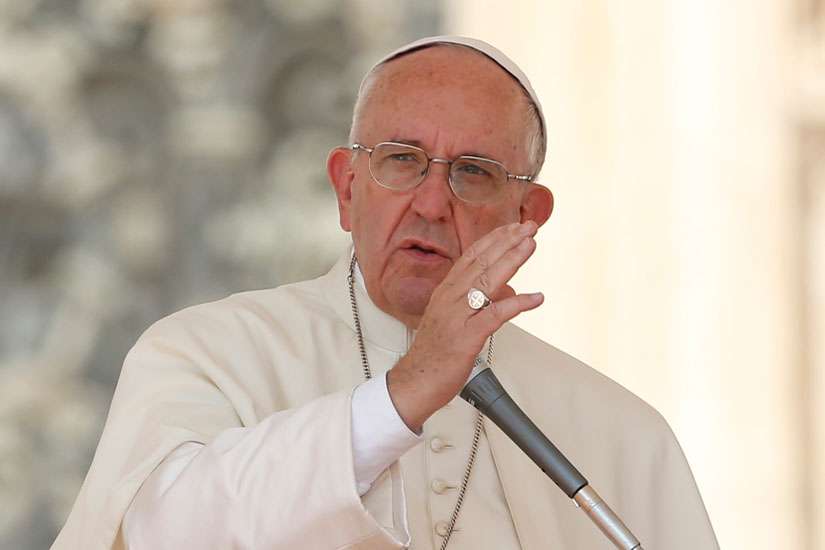Beginning with a passage from the First Letter of Paul to the Corinthians (15:12-20), in which the Apostle to the Gentiles specifically addresses the certainty of Christian faith in bodily resurrection, rooted in our certainty that Christ is risen from the dead, the Holy Father reflects on the implications of, and the challenges to, our faith.
The logic of the day after tomorrow is the logic of the risen Christ
“It is easy for all of us,” he said, “to enter into the logic of the past, because it is concrete,” and it is also “easy to enter into the logic of the here-and-now, because we see it.” When, however, we look to the future, then we think it is “better not to think,” or at least, easy to fall prey to the temptation not to think it all the way through:
“The logic of yesterday is easy. The logic of today is easy. The logic of the future is easy: all die. But the logic of the day after tomorrow, this is difficult. And this is what Paul wants to preach today: the logic of the day after tomorrow. How will it be? How will He be? The resurrection: Christ is risen. Christ is risen and it is quite clear that He has not been raised as a ghost. In the passage from Luke about the resurrection [we read]: ‘But touch me.’ A ghost has no flesh, no bones. ‘Touch me. Feed me.’ The logic of the day after tomorrow is the logic in which enters the flesh.”
We wonder, he continued, how the sky will be, or whether “we will all be there,” but, “we do not reach what Paul wants us to understand – this logic of the day after tomorrow.” Here, he warned, “we betray a certain Gnosticism,” when we think that “everything will be spiritual” and “we are afraid of flesh.”
Say “No!” to spiritualistic piety, and enter into the logic of the flesh of Christ
Do not forget, he said, “this was the first heresy” that the apostle John condemns: “Who says that the Word of God does not come in the flesh is Antichrist”:
“We are afraid to accept and bear the ultimate consequences to the flesh of Christ. a spiritualistic piety is easier, a gossamer pietism; but to enter into the logic of the flesh of Christ, this is difficult. And this is the logic of the day after tomorrow. We will be resurrected as Christ is risen, with our flesh.”
Francis recalled that the early Christians asked about how Jesus was resurrected and notes that it is in the faith in the resurrection of the body that the works of mercy have their deepest root cause. On the other hand, he continued, St. Paul strongly emphasizes that all shall be changed, our bodies and our flesh will be transformed.
We ask for the grace to believe in the transformation of the flesh
Pope Francis went on to remind the faithful that the Lord “let Himself be seen, and touched, and he ate with the disciples after the resurrection.” This “is the logic of the day after tomorrow, one that we find difficult to understand,” in which we find it difficult to enter:
“It is a sign of maturity to understand well the logic of the past. It is a sign of maturity to move in the logic of the present – in both that of yesterday and that of today. It is also a sign of maturity to have prudence to see the logic of tomorrow, of the future. Nevertheless, it takes a great grace of the Holy Spirit to understand this logic of the day after tomorrow – after the transformation – when He will come and take us – all changed – on clouds, to stay forever with Him. We ask the Lord for the grace of this faith.”


